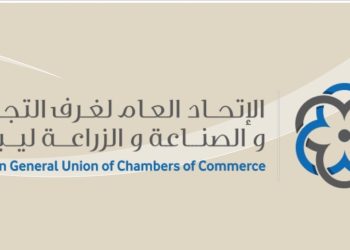By Libya Herald reporter.

Malta, 21 February 2015:
The use of the National ID Number in disbursing state-sector salaries will save the state coffers . . .[restrict]‘’more than LD 6 billion’’.
The eye-watering figure was revealed in a televised address by the GNC/Libya Dawn Salvation Government prime minister Omar Al-Hassi on Thursday, LANA reports.
Hassi assured the public that January and February salaries were already deposited at banks and would start to be paid out at the start of next week.
His assurance comes in the midst of concern by Libyans that January’s and February’s wages would not be paid out at the end of this month, in view of news that the various state-departments had not succeeded in forwarding lists of names of salary recipients – accompanied by National ID Numbers.
The public concern is partly fed by the often conflicting public statements by the GNC, the Hassi government, the Audit Bureau and the Central Bank of Libya (CBL) regarding the readiness, or lack of, state-sector employee lists with the National ID Number.
It will be recalled that in view of Libya’s current internal political and economic problems, as well as the collapse in international crude oil prices, Libya is suffering from a budget deficit. Its oil-export revenue is not covering its expenditures on salaries and subsidies, forcing the state to dip into its foreign currency reserves.
The CBL has been in the forefront of attempting to cut state outgoings, including the imposition of the use of the National ID Number in the disbursement of state-sector salaries.
Hassi said that the LD 6 bn excess or duplicate salaries ‘’used to be clearly stolen’’, and that the National ID Number would start to be used from the month of March.
It had previously been floated that the National ID Number would start to be used for the disbursement of January and February’s salaries. However, Hassi’s statement of March confirms news emanating from the various Ministry bureaucracy that the state bureaucracy has not been able to marry all the lists of names and National ID Numbers in time for February payments.
Hassi went on to state the various other austerity measures laid down by the CBL in order to curtail the deficit and save foreign currency reserves.
These included the measure to cut overseas embassy staff, and cut their very high rate of salaries, which together with some other departments, were raised in an illegal procedure – over and above other sectors, Hassi said.
He also called for the halting of the payment of salaries to those who fail to turn up to work and action against those who help cover-up work absenteeism. The uncontrolled awarding of student scholarships also had to stop, he added.
Finally, in an admission that the Libyan state-system cannot supervise itself, Hassi emphasized the need to cooperate with NGO’s due to their concern for the public interest and public money, without vested interest and without them seeking any gain whatsoever. [/restrict]








